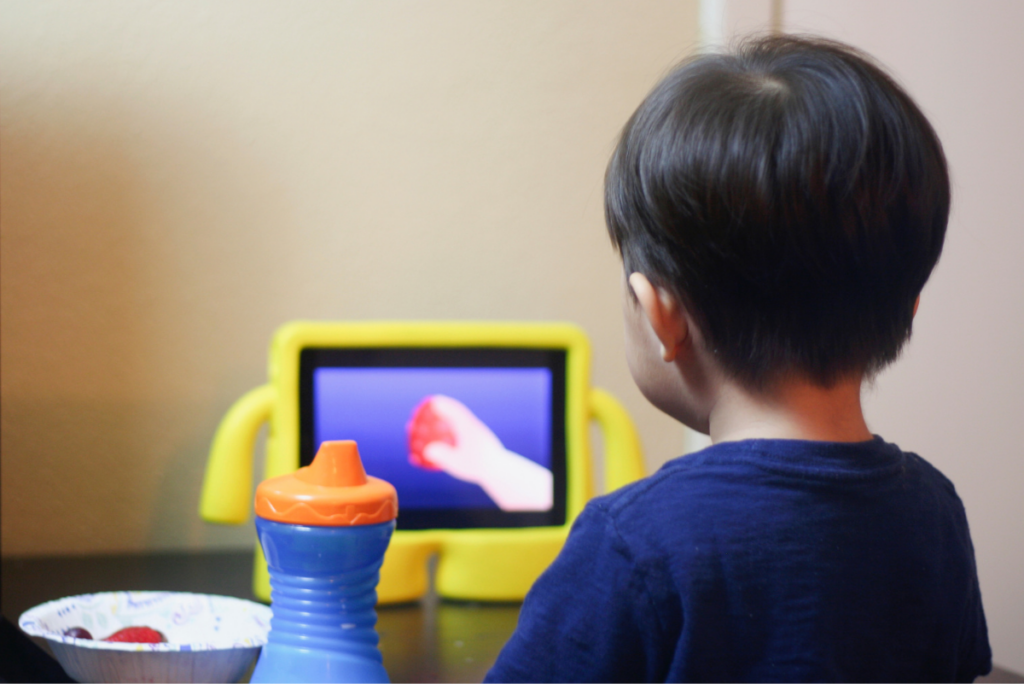
Ever since the first televisions were brought into homes, parents have been worried about the impact of screens on their children. And now that kids are spending more time at home, finding a healthy balance has become incredibly important. But in order to effectively limit your kids’ screen time, you’ll need to understand both the benefits and consequences of using a digital device.
What Counts as Screen Time?
Screens are a far more important part of the modern world than they used to be. In the late 1900s, the television was a box that provided entertainment and culture, but it didn’t serve a functional purpose. Today, almost all primary methods of communication and connection involve an electronic device. From phones to games to online school, kids need to be able to use digital tools to engage – and that means looking at a screen.
When deciding whether to limit a child’s screen time, it’s easy to look at all digital interactions as if they are the same. However, a clear line can be drawn between passive and active engagement, even in the digital world. Your goal should be to help your kids develop a balanced attitude towards all types of digital engagement, just as you want them to have a healthy approach towards the rest of life.
In general, you should see activities like watching movies and television as a way for you and your kids to either relax or absorb information. Meanwhile, gaming should be seen as a social activity that helps kids learn skills and connect with their peers. Older kids may also spend time texting or chatting with their friends – behaviors that should be encouraged as long as the 2020 pandemic continues.
Reasons to Limit Screen Time
If you’ve ever spent all day staring at a computer screen, you’ve probably felt something known as computer vision syndrome. This catch-all phrase refers to the host of problems that can be caused by overworking your eye muscles while you read, watch, and otherwise take in digital stimuli.
Computer vision syndrome isn’t really a disease so much as a statement of common sense: if you stare at a screen all day, your eyes will get tired. This simple fact applies to both adults and children, and it’s one of the best reasons to reduce the amount of time you spend looking at either a computer or television screen.
Some studies also suggest that a running television – or other media device – can prevent very young children from properly engaging with their environment. Kids who are raised with too much noise or flashing lights might not be able to focus, which can cause them to miss important details and slow their development.
Neither of these potential consequences means you should keep your kids away from screens or even take drastic steps to limit their digital interaction. Computers are a part of modern living, and your kids need to be proficient at using them. But if you want to protect their vision and their mental development, you should make sure that your kids know how to healthily incorporate screens in their daily lives.
Moderating Screen Time for the Family
The easiest way to prevent computer vision syndrome is to take regular breaks. A good balance is to spend 15 minutes away from the screen for every hour spent looking at it; this goes for computers, televisions, phones, and anything else with a backlight.
Adults can be expected to take their own breaks, but children and teenagers will need help moderating themselves. Start by modeling good break habits by getting up and stretching after an episode of your favorite show. Next, pay attention to how long your kids are spending in front of their devices, and help them notice when it’s time to get up for a drink of water. After a few hours of engaging with either an active or passive digital activity, encourage your kids to spend a little time in the physical world.
Very young children should not spend that much time in front of the computer or television. Current recommendations suggest that children under the age of 2 shouldn’t watch television or use devices at all; however, almost no households are following this advice, and many young kids actually have their own devices. As society moves forward, more information will be available about the impact of screens on early development. Remember to never let a young child use an electronic device without supervision.
The right amount of screen time varies for every family and each individual child. Some kids thrive in the digital environment, and taking away their computer might legitimately prevent them from developing social and career skills. Other kids will sit in front of the television for hours if they’re allowed to, but that doesn’t make them healthy. Pay attention to your children, watch their health, and help them develop balanced habits. If you take the right precautions, there’s no reason screens can’t be part of a happy and productive childhood.






